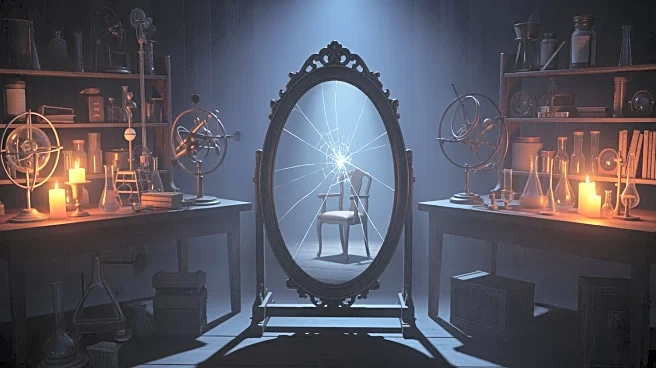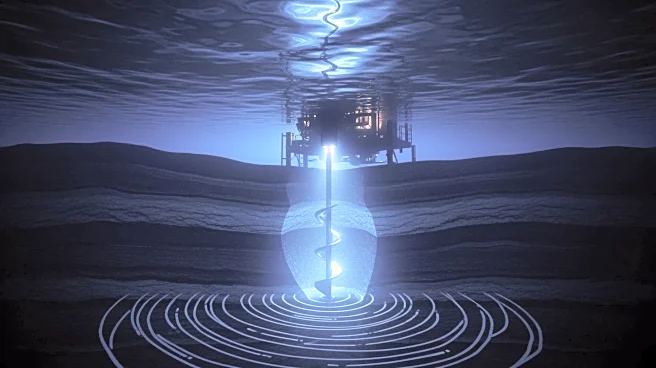What's Happening?
Guillermo del Toro's latest film, Frankenstein, presents a unique take on the classic tale, focusing on the complex relationship between the Creature, played by Jacob Elordi, and his creator, Victor Frankenstein, portrayed
by Oscar Isaac. Del Toro, a lifelong fan of Mary Shelley's novel, has infused the story with themes of pain, regret, and forgiveness, expanding the emotional depth of the narrative. The film, initially planned as two separate movies, has been condensed into one, featuring two acts that explore the duality of the characters. After a successful premiere at the Venice Film Festival, Frankenstein is now available for streaming on Netflix. Del Toro's vision for the film was realized through the performances of Isaac and Elordi, who brought unexpected depth to their roles, enhancing the director's original concept.
Why It's Important?
Frankenstein's exploration of father-son dynamics and the emotional spectrum of forgiveness adds a new layer to the classic narrative, offering audiences a fresh perspective on the story. Del Toro's approach highlights the human aspects of the Creature, challenging traditional horror tropes and emphasizing character development over pure fright. This film contributes to the ongoing conversation about the role of monsters in cinema, not just as sources of fear but as reflections of human emotions and relationships. The film's release on Netflix broadens its accessibility, allowing a wider audience to engage with its themes and potentially influencing future adaptations of classic literature.
What's Next?
With Frankenstein now available on Netflix, the film is poised to reach a global audience, potentially sparking discussions about its themes and the performances of its lead actors. Del Toro's unique interpretation may inspire other filmmakers to explore similar narratives, focusing on the emotional and relational aspects of classic stories. The film's success could lead to further collaborations between del Toro and streaming platforms, expanding the reach of his distinctive storytelling style.
Beyond the Headlines
Del Toro's Frankenstein delves into ethical and cultural dimensions, questioning the responsibilities of creators towards their creations. The film's portrayal of the Creature as a being capable of love and hatred challenges viewers to reconsider the nature of monstrosity and humanity. This narrative shift may influence cultural perceptions of classic monsters, encouraging audiences to empathize with characters traditionally seen as villains.








